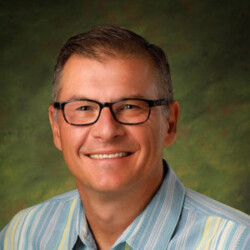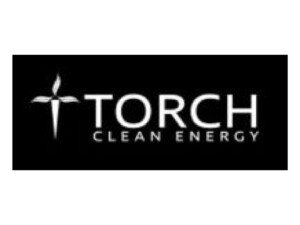Join our panelists as we:
- Break down how clean heat benefits utility customers.
- Discuss the public health benefits of clean heat and the costs of delaying a rapid transition.
- Explain the opportunities and barriers to transitioning to clean heat in our region.
Panelists
Meera Fickling
Senior Climate Policy Analyst
Western Resource Advocates
Part of the Clean Energy Program at WRA, Meera advocates for policies that reduce greenhouse gas emissions, achieve state-level climate goals, and accelerate a transition toward renewables, energy efficiency, and lower carbon fuels. Drawing on her background modeling energy use in buildings, she particularly focuses on buildings’ energy efficiency and electrification.
Meera joined WRA in February 2021. Prior to WRA, she was an Industry Economist and principal commercial demand modeler for the National Energy Modeling System (NEMS) at the U.S. Energy Information Administration, where she developed long-term energy consumption and distributed generation projections for commercial buildings. Meera has also helped manage USAID energy projects in the Caribbean, Central America, and Central Asia, and she has research experience in carbon markets and climate change economics.
Meera has a Bachelor of Arts in Economics from the College of William and Mary and a Master of Environmental Management from the Nicholas School of the Environment at Duke University.

Beatriz Soto
Protégete Director
Conservation Colorado
Beatriz Oliva Soto Ruvalcaba is originally from Chihuahua, Mexico, through her childhood and youth she grew up in a bi-cultural setting between Mexico and the United States. She graduated from Basalt High School and went on to study architecture in Chihuahua City. She has been at the intersection of community building and working towards a stable climate for the past two decades. Beatriz is a LEED certified architect that worked on a variety of energy related projects, from Net-Zero affordable housing to high performance strawbale homes, sustainable developments in the pacific coast of Mexico, as well as providing professional trainings with the US and with the Mexican Green Building Councils. She is former Director of Defiende Nuestra Tierra for The Wilderness Workshop, also a co-founding member of Voces Unidas de las Montañas, first non-profit organization in the central mountain region, made up of latinx leaders that help create opportunities for leaders to speak and advocate for themselves. She currently is the Director of Protégete, a statewide program from Conservation Colorado, who has the mission to elevate Latino driven solutions to protect our lands, water, air and fight for environmental and climate justice.
Beatriz volunteers in local schools to encourage latinx youth to see themselves as leaders in STEM fields, become stewards of the land and to understand the importance of their voice in environmental and social issues. She is the proud mother of a 10 year old Colorado Native, together they enjoy camping, hiking, snowboarding and eating good tacos.

Rick Van Diepen, AIA, LEED AP BD+C
Principal
GRN Vision Sustainability Consultants
Rick Van Diepen has called Las Vegas home after receiving a BA degree in Architecture from UC Berkeley. Rick is a self-described ‘recovering architect’ and in 2014 decided to follow his passion for sustainable building, co-founding GRN Vision, a consulting firm specializing in sustainable design and green building certification. Rick’s focus is on Integrative Design and deep energy retrofits including commercial Energy Star certification, LEED and Green Globes green building certification. Rick’s passion is to promote healthy and regenerative buildings that strive to be net-zero energy, zero emissions and that positively benefit the occupants, the environment and the local community.
Founded as a Community Benefit Corporation, GRN Vision provides design and planning services to public agencies and low income housing developers providing homeless sheltering and transitional housing facilities. GRN Vision has also provided reduced fee or pro bono consulting services to numerous local charitable organizations supporting low income families and the homeless.
Rick has served on boards for the American Institute of Architects (AIA) Nevada Chapter, Nevadans For Clean and Reliable Energy (NCARE), Impact Nevada, and the Nevada Chapter of the US Green Building Council (USGBC). Rick has been a featured guest speaker and panelist for numerous local professional groups, and has appeared on local TV and radio programs on the subject of sustainable design and community-based design.
Moderator
Stacy Tellinghuisen
Deputy Director of Policy Development
Western Resource Advocates
Stacy Tellinghuisen works to promote energy choices that protect the West’s water supplies. She has published numerous reports about the water benefits of transitioning to cleaner sources of energy, and has submitted testimony in public utility commission hearings and federal court cases on the subject. Stacy has worked with partners from utilities, state and federal agencies, the national labs, the renewable energy industry, and others. Stacy’s current work focuses on EPA’s standards for greenhouse gas emissions from existing power plants, and the standards’ impact on energy and water supplies in western states.
Stacy joined Western Resource Advocates in 2008. Before coming to Colorado, she was an energy/water analyst for the California Sustainability Alliance, where she researched the energy intensity of Southern California’s water supplies. Stacy has also researched the energy, water, and greenhouse gas emissions of different landscapes, and worked on various water resources projects for the City of Moab, Utah. She has taught natural history to school groups in parks throughout California and Utah.
Stacy has Bachelor of Arts in Geology from Carleton College in Northfield, Minnesota, and a Master of Environmental Science and Management from the Donald Bren School of Environmental Science & Management at the University of California, Santa Barbara.
Additional Resources:
Fossil fuel use in buildings and industry is a major driver of climate change.
According to the Environmental Protection Agency, direct combustion of gas, petroleum, and coal in homes and businesses accounted 17% of all energy-related carbon emissions in Western states in 2017. Developing policies that encourage electrification of space and water heating as well as kitchen cooktops in homes and businesses builds on critical progress in decarbonizing the electricity sector. And electrification can help prevent childhood asthma and other respiratory problems — a recent study found that gas stoves can emit nitrogen dioxide at levels more than 250% over the EPA limits for outdoor air pollution.
In the next 10 years, home and business owners have a real opportunity to replace aging fossil-fueled appliances with clean and energy-efficient electric ones that help reduce carbon emissions and save customers money. This type of market transformation will be a vital part of tackling carbon emission from these energy sectors, in combination with updated building codes and other standards that spur investment and innovation in clean technologies and funnel those benefits to disproportionately impacted communities.
If we’re going to act fast to address climate change and lessen the already dire impacts frontline communities are living with day-to-day, we can’t afford to ignore this important piece of the puzzle.
Thank you to WRA’s sponsors




